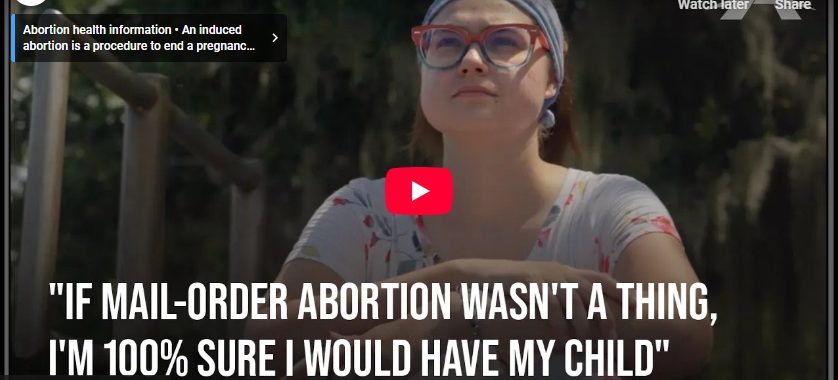FDA Quietly Approves Generic Version of RU-486 Abortion Drug

The U.S. Food and Drug Administration quietly approved a generic version of the drug mifepristone — part of the RU-486 abortion regimen — on September 30.
Abortionists typically use two drugs for chemical abortions. Mifepristone is administered to kill the unborn baby. A second drug called misoprostol causes the baby to be expelled from the woman’s body.
It is deeply troubling that the FDA would approve a generic abortion drug in light of recent reports on mifepristone.
A study by the experts at the Ethics and Public Policy Center found the abortion drugs mifepristone and misoprostol are at least 22 times more dangerous than the U.S. Food and Drug Administration labeling indicates.
Researchers noted that from 2017 to 2023, nearly one in nine women suffered serious health complications like sepsis, infection, and hemorrhaging as a direct result of abortion drugs.
All of this has prompted the U.S. Department of Health and Human Services to launch a formal investigation into the drugs and their safety. It isn’t clear why the FDA would approve a generic form of mifepristone if the federal government is concerned the drug may be dangerous.
Since 2022, Arkansas has generally prohibited abortion except to save the life of the mother, and state law prohibits abortion drugs from being mailed or delivered in the state. Abortionists who break the law are subject to criminal penalties. They may be sued for malpractice, and they face professional discipline — like suspension of their medical licenses.
Unfortunately, lawmakers in some states have enacted “shield laws” to protect abortionists who ship abortion drugs across the country.
If an abortionist in one of these states mails abortion drugs to Arkansas, the state’s “shield law” prevents the abortionist from being prosecuted. Groups like Planned Parenthood are also spending millions of dollars to promote abortion to women from pro-life states like Arkansas. That’s a serious problem.
But Attorney General Tim Griffin has threatened to take legal action against companies advertising abortion drugs in Arkansas. The attorney general says these groups may be penalized under the state’s Deceptive Trade Practices Act. He has also urged the federal government to restrict abortion drugs and let states like Arkansas enforce their pro-life laws.
Abortion drugs end the lives of unborn children, and they hurt women. They simply should not be for sale in America.
Articles appearing on this website are written with the aid of Family Council’s researchers and writers.
“I felt pressured to take the pills”
Our friends at Alliance Defending Freedom recently released a video highlighting how mail-order abortion pills make it easier for women to be coerced into having an abortion.
Since 2022, Arkansas has generally prohibited abortion except to save the life of the mother, and state law prohibits abortion drugs from being mailed or delivered in the state. Abortionists who break the law are subject to criminal penalties. They may be sued for malpractice, and they face professional discipline — like suspension of their medical licenses.
However, pro-abortion states are enacting “shield laws” to protect abortionists who ship abortion drugs across the country.
If an abortionist in one of these states mails abortion drugs to Arkansas or Texas, the state’s “shield law” prevents the abortionist from being prosecuted.
Abortion drugs don’t just end the lives of unborn children. They also carry serious health risks for women.
A recent study by the experts at the Ethics and Public Policy Center shows abortion drugs are at least 22 times more dangerous than the U.S. Food and Drug Administration labeling indicates.
Researchers found that from 2017 to 2023, nearly one in nine women suffered serious health complications like sepsis, infection, and hemorrhaging as a direct result of abortion drugs. That’s a serious concern.
Attorney General Tim Griffin has sent cease-and-desist letters to companies advertising abortion drugs in Arkansas, and he has notified the companies that they may be penalized under the state’s Deceptive Trade Practices Act. He has also urged the federal government to restrict abortion drugs and let states like Arkansas enforce their pro-life laws.
Public opinion polling shows Arkansans oppose abortion, and there is evidence that children are alive today because Arkansas has prohibited abortion. The state’s pro-life laws are saving lives, but it’s important to make sure abortion drugs aren’t illegally shipped into Arkansas — or any other state, for that matter.
Articles appearing on this website are written with the aid of Family Council’s researchers and writers.



